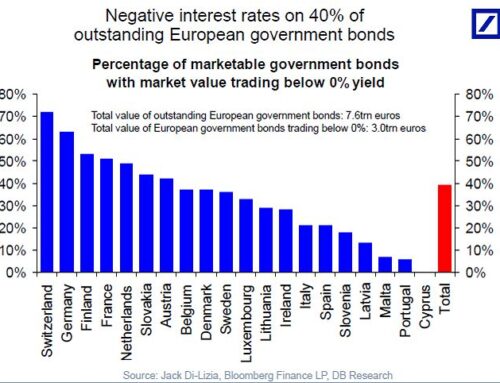Recently I wrote about Mutual funds and the risk attached to them. I was completely unaware of what was coming our way. You can read my post Are mutual funds Buy and forget?
What is the issue?
Franklin Templeton Mutual Fund has voluntarily decided to wind up six of its fixed-income debt schemes effective April 23, 2020. The fund house has taken this step as it believes that the market will not return to normalcy soon because of Covid-19 disruption.
The statement of the franklin Templeton Mutual Fund on this…
The six schemes, namely, Franklin India Low Duration Fund, Franklin India Dynamic Accrual Fund, Franklin India Credit Risk Fund, Franklin India Short Term Income Plan, Franklin India Ultra Short Bond Fund, and Franklin India Income Opportunities Fund, cumulatively manage assets worth ₹26,000 crores.
Means what?
There was an advertisement saying Mutual Fund investments are subject to market risk. So read all scheme-related documents carefully before investing. Now we listen to ” Mutual Fund Sahi hai. I wrote a blog post about what is the risk of mutual funds. I don’t know whether that is still available or not. So I am going to make this post sufficiently lengthy. I was planning to make one post with a risk-free heading Debt fund: Myth.
Also, read Mutual Fund Investments are subject to market risk.
Debt funds are not Equity mutual Funds. They are there to channel funds only for Lending money. Equity mutual funds are for buying ownership in the form of shares. The risk attached here is Credit risk, Liquidity risk, Maturity risk, Inflation, etc. For a healthy financial system, funds at the correct cost are essential. If borrowers start getting funds at a higher level, then it is also incorrect; also, lenders not getting a return enough against risk taken by them is wrong. At the same time, if the government or related entities started getting all funds, it would harm private growth.
For this debt, funds play an essential role. They collect money from small people and lend it to the right person. As the whole mutual fund industry started growing, Debt funds also started receiving a significant amount. So much so that it virtually becomes like the 5th largest bank ( As per consolidated Portfolio of all mutual fund schemes, by taking only their investments in bonds and debentures). I am not against it. I know how big the indenture ( Term used for the data given by the issuer) of any bond issue is, and many peoples don’t know how to read it.
In India, this industry is regulated by SEBI. SEBI classifies Debt funds into some categories.
Based on their maturity, debt funds are classified into these categories:
- Overnight Fund: Investment in overnight securities having a maturity of 1 day
- Liquid Fund: Investment in Debt and money market securities with maturity of up to 91 days only
- Ultra Short Duration Fund: Investment in Debt & Money Market instruments such that the Macaulay duration of the Portfolio is between 3 months – 6 months
- Low Duration Fund: Investment in Debt & Money Market instruments such that the Macaulay duration of the Portfolio is between 6 months- 12 months
- Money Market Fund: Investment in Money Market instruments having a maturity of up to 1 year
- Short Duration Fund: Investment in Debt & Money Market instruments such that the Macaulay duration of the Portfolio is between 1 year – 3 years
- Medium Duration Fund: Investment in Debt & Money Market instruments such that the Macaulay duration of the Portfolio is between 3 years – 4 years
- Medium to Long Duration Fund: Investment in Debt & Money Market instruments such that the Macaulay duration of the portfolio is between 4 – 7 years
- Long Duration Fund: Investment in Debt & Money Market Instruments such that the Macaulay duration of the Portfolio is more excellent than seven years
- Dynamic Fund: Investment across duration.
Besides this maturity-based classification, there are a few other types of debt funds where the securities invested are specified.
Gilt funds: These funds invest a minimum of 80% of total assets in government securities. These securities, also called gilts, are bonds issued by the Government of India. Unlike bonds issued by companies, the chance of the government defaulting on its loan obligation is significantly lower.
Gilt Fund with 10-year Constant Duration: Here, a minimum of 80% of total assets in invested in Gsecs such that the Macaulay duration of the Portfolio is equal to 10 years
Corporate Bond Funds: Here, a minimum of 80% is invested in corporate bonds (only in the highest-rated instruments)
Credit Risk Fund: Here, a minimum of 65% is invested in corporate bonds (investment in below highest rated instruments).
Banking and PSU Funds: These funds have a minimum 80% investment in debt instruments of banks, Public Sector Undertakings, and Public Financial Institutions
Floater Fund: Here, floating-rate instruments comprise a minimum of 65% of total assets.
SO WHAT IS THE ISSUE?
The issue is debt funds are marketed as Low or zero risks. Nowadays, what I understand is that MUTUAL FUND SAHI HAI…
Reality is stark different. Open-ended and close-ended are two types of funds. In Open-ended funds investor is free to buy and sell his funds. If you choose open-ended funds, you don’t want liquidity risk. So forcing you to change your decision is wrong and signals that nothing is correct with one scheme and six sufficient big schemes.
According to the statement, COVID-19 made the situation difficult, and the AMC received many redemption requests. As the liquidity of some securities is not reasonable, market risk is also involved. Current investors will receive the payment, but This may be started as a chain as if one institution needs their payment tomorrow, it is not possible that another party may default. In a financial system like India, everything is interconnected.
Many retail, HNI, and corporate investors park money in debt funds due to higher returns than bank deposits, easy liquidity, and tax benefits of indexation if they remain invested for three years. However, with the fund house deciding to wind up these schemes, these open-ended schemes, which are available for buying or selling daily on every working day, will not be now available.
The six Franklin funds have combined assets under management (AUM) of ₹25,856 crores. The total AUM of Franklin Templeton is ₹1.04 trillion as of March 2020. As per the data analyzed by Mint, these schemes have 64.7% of their holdings in bonds and debentures rated below AA.
Franklin India Low Duration Fund has 64.7% of its holding in below AA-rated bonds and debentures, Dynamic Accrual Fund 44.6%, Credit Risk Fund 50.2%, Short Term Income Plan 58.9%, Ultra Short Term Bond Plan 23.9%, and Income Opportunities Fund 41.3%.
For doing this, those schemes invest in many under-stress sectors, like power and NBFC. For instance, the Low duration fund is invested in Greenco clean energy projects. I don’t understand, but I can ask that if the company went wrong, how can Franklin Templeton pay all unitholders? From Portfolio, I am sure they are even borrowing the money for investment. This is increasing the leverage risk. In another scheme, the ultra-short bond fund, bonds of one subsidiary of Edelweiss also exist. Not more than one month is on the horizon. Is this his will go? I agree that Coronavirus makes the situation worse but does that mean that companies also stopped payment? Another risk is as they are debt funds, they are borrowing money and investing. Even if the resumption is prevented, What about the money taken as a loan? The total value in percentage total coming as more than 100% means borrowed funds at work. As the Portfolio is more significant, the amount is also larger. For an ultra short-term fund, it is 4%, but for a low-income fund, it is 10%+.
While Franklin Templeton has decided to wind up these six schemes, there is a legal catch. As per regulations laid down by the Securities and Exchange Board of India (Sebi), a winding requires four approvals: from trustees, 50% of unitholders, from Sebi, and finally refunding investors. So far, the fund house has done only one that is taking approval from trustees. “It looks like an exercise to be completed in the coming years. Most of the necessary approvals are pending,”
I want to end with the tweet ( as an entertainment)
By the time he finished his samosa, he understood that Mutual Funds give you easy access to your money! Check it out here. pic.twitter.com/urhQqdGhZs
— Mutual Funds Sahi Hai (@MFSahiHai) May 29, 2017



